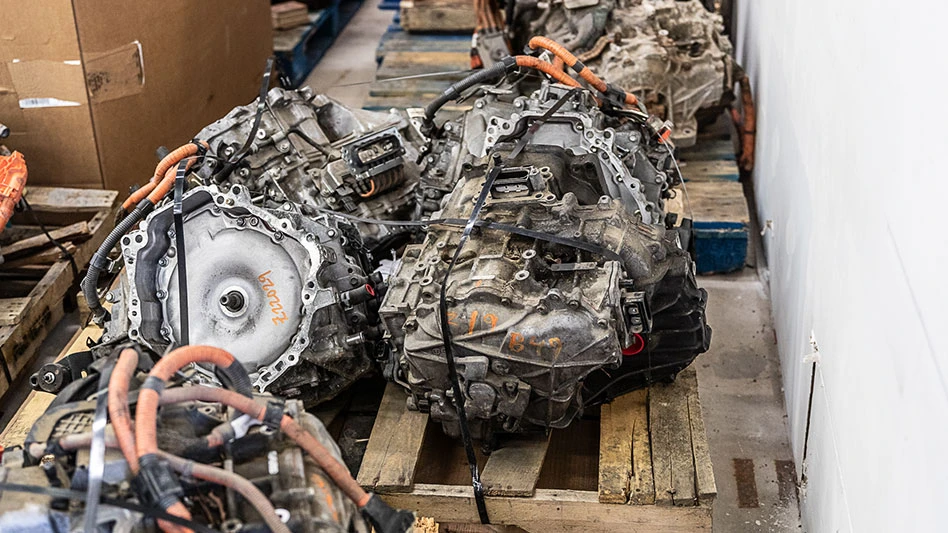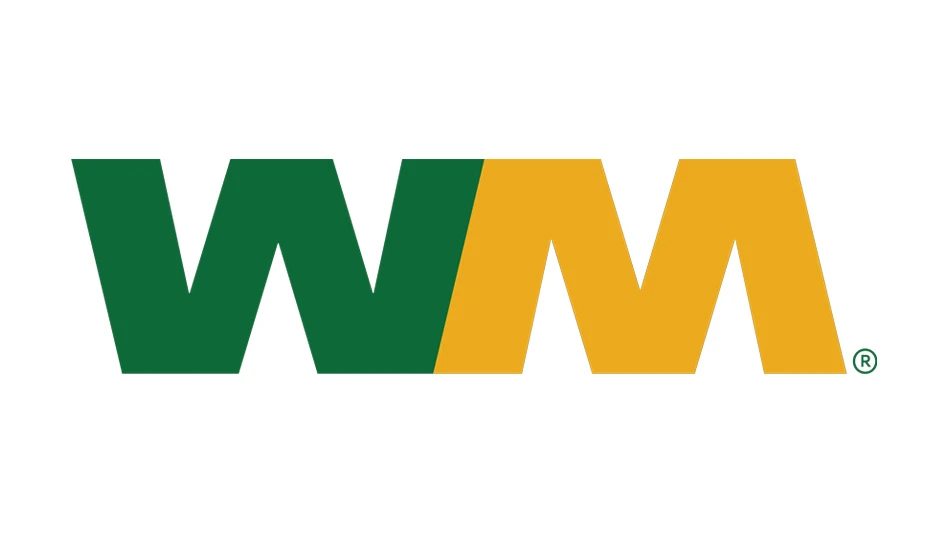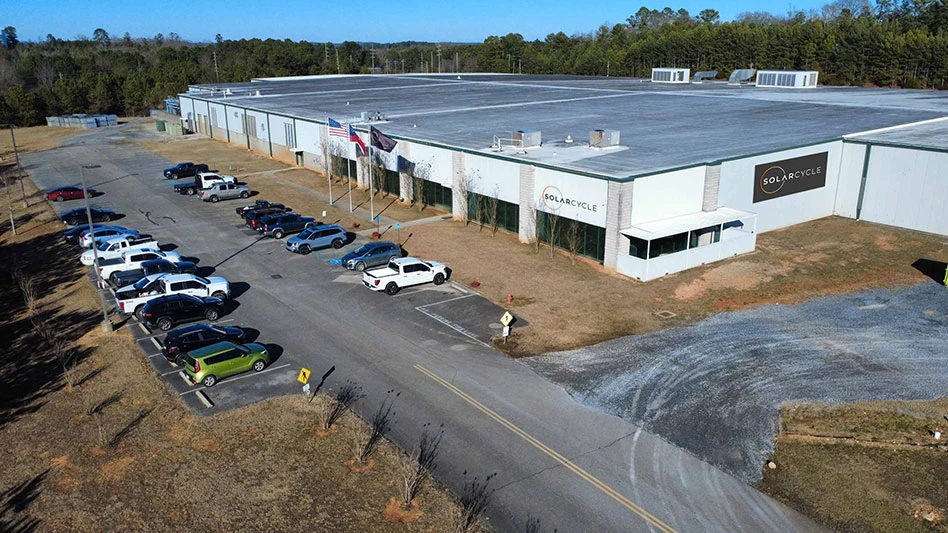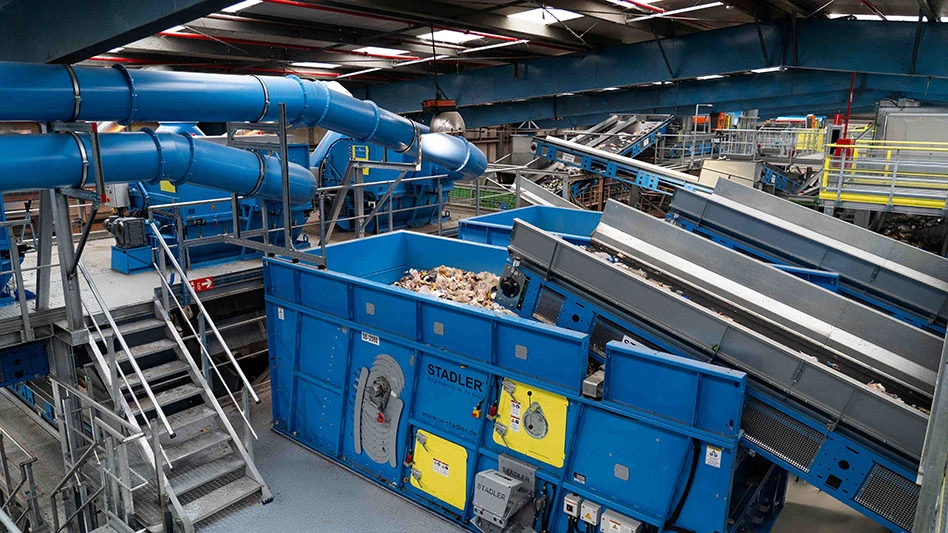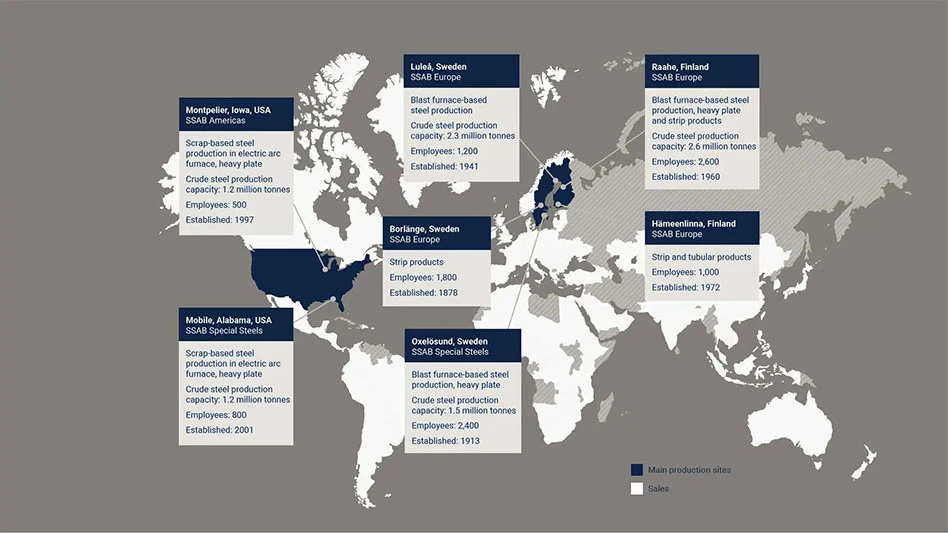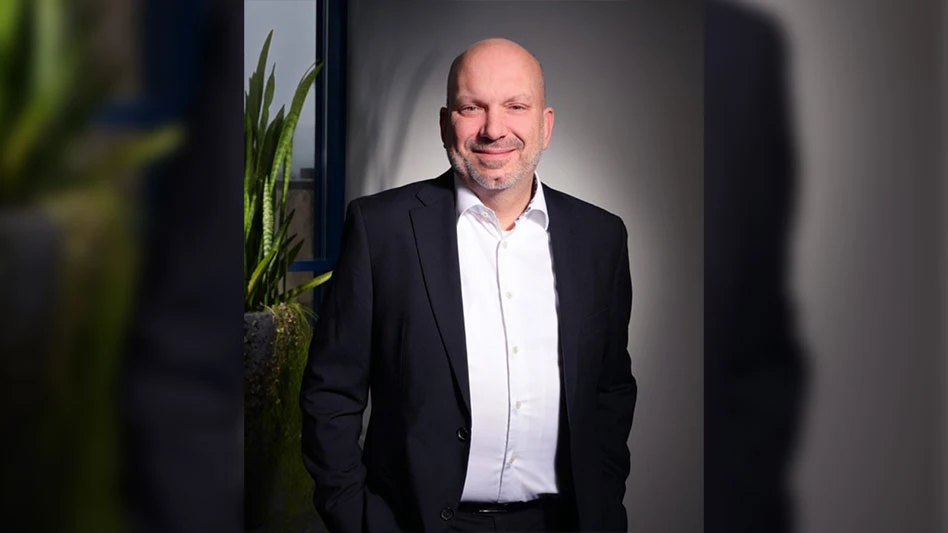
Photo courtesy of Cortec Corp.
St. Paul, Minnesota-based Cortec Corp. says a plastic packaging recycling program it coordinates for a heavy equipment manufacturer operating in the United States has achieved an estimated $1 million in savings for the equipment maker.
The Cortec has participated in its plastic recycling program for several years, allowing it to streamline its engine parts packaging process and save significant money while reducing waste.
“This program's financial and environmental benefits highlight the importance of collaboration for sustainability,” says Cortec, which offers more than 400 types of corrosion control products, including plastic films, for packaging, metalworking, construction, electronics, water treatment, oil and gas and other applications.
According to Cortec, the manufacturing customer’s large engine facility receives an array of components, including engine blocks, heads and smaller parts, sourced from dozens of suppliers from the U.S. and beyond.
All components received are packaged in Cortec plastic vapor corrosion inhibitor (VpCI-126) bags. Some of them—because of what Cortec calls a long-standing yet outdated practice—once involved suppliers adding unnecessary oil to the bags during packaging.
The oil contaminated the VpCI-126 bags and their corrugated plastic liners, rendering them unusable for recycling or reuse and contributing to unnecessary waste, says the firm.
Cortec proposed eliminating the oil and implementing a closed-loop recycling program to the equipment maker, suggesting the manufacturer return the used VpCI-126 bags to the Cortec Advanced Films (CAF) plant in Cambridge, Minnesota, for reprocessing.
"The customer embraced this innovative approach,” says Cortec, which then performed validation testing conducted within its Cortec Laboratories business unit.
The manufacturer then eliminated the oil application and installed a baler to compress the used VpCI-126 bags. Cortec purchased the baled plastic at market rates and covered the shipping costs to its CAF recycling center in Cambridge.
There, the baled material was reprocessed into new VpCI film products “at a rate that could assure quality and performance,” Cortec says.
“While establishing this recycling program presented its share of challenges, the commitment of both Cortec and the manufacturer to sustainability and efficiency brought this circular economy to a reality,” the company continues.
On the cost savings front, by eliminating the use of packaging oil, the manufacturer realized annual savings of several hundred thousand dollars, according to Cortec.
As well, the ability to reuse corrugated plastic liners and the revenue generated from selling used VpCI-126 bags to Cortec was able to divert hundreds of thousands of pounds of plastic from going to a landfill or incinerator.
Additionally, reducing the presence of petroleum-based chemicals within the plant enhanced health and safety conditions and led to savings on liability insurance, Cortec says.
“This successful partnership demonstrates the benefits of embracing a ‘circular economy’ for plastics," the company adds.
Latest from Recycling Today
- Altor program boosts EPS recycling
- IP to spin off non-North American operations
- Flexible Film Recycling Alliance report outlines progress
- RERF opens Avagliano award nominations
- Eriez expands European sales network
- Gränges increases sales volume in 2025
- Aduro selects Netherlands as site for industrial scale-up facility
- Nasco-Op declares dividend
